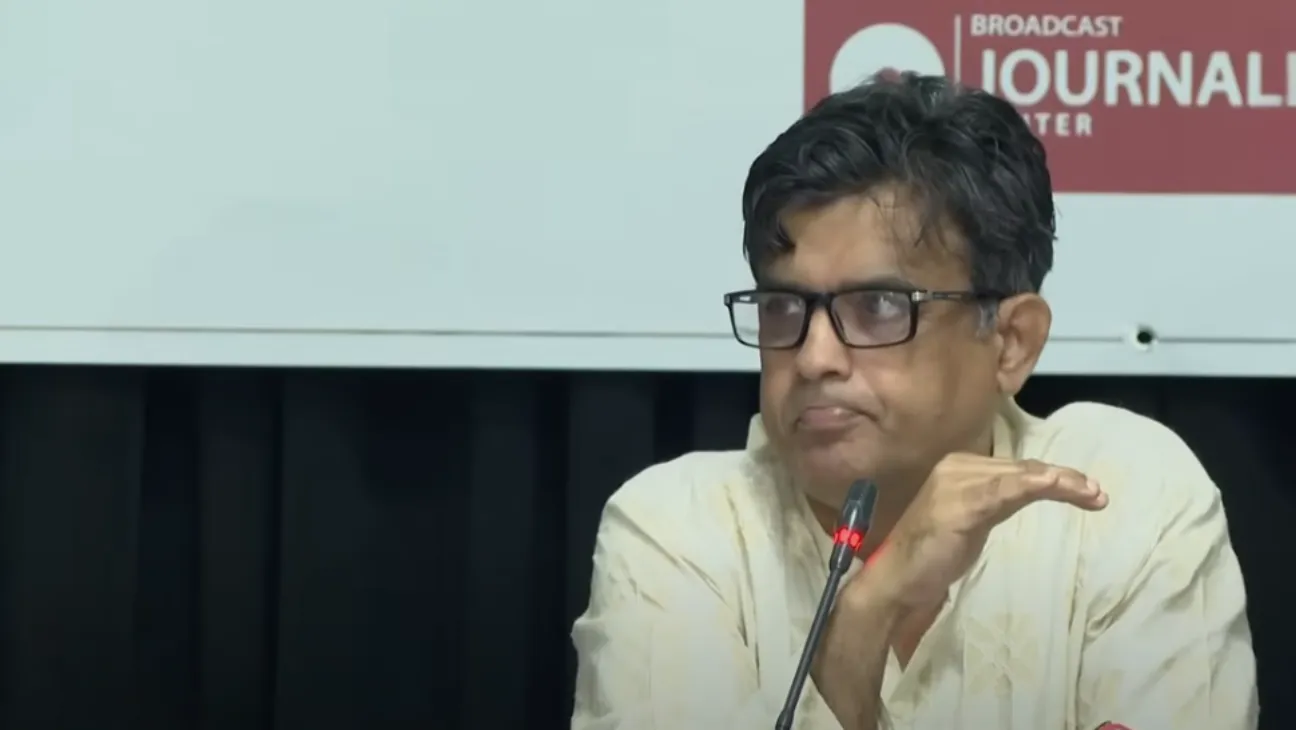The Chief Adviser’s Press Secretary, Shafiqul Alam, has announced plans to request a United Nations-supervised investigation into journalism practices in Bangladesh over the past 15 years, during the Awami League’s tenure.
Speaking at a public event hosted by the Broadcast Journalist Center (BJC) on Saturday in Dhaka, Shafiqul expressed concern about the state of media during that period and said an international review could help restore credibility.
“We are writing to the United Nations. We are asking them to send external experts to examine what kind of journalism has taken place here,” he said.
The event was held at the Daily Star Bhaban and centered around the review of the Media Reform Commission’s report.
Media, Trust, and Truth
Shafiqul questioned the level of journalistic accountability during a time marked by political unrest, disappearances, and allegations of mass legal cases against opposition members.
“There were three controversial elections. People were killed or went missing. Six million cases were reportedly filed against opposition members. Have we really covered this truthfully?” he asked.
He emphasized that the discussion needs to happen now, not later.
The press secretary also linked journalistic credibility to national stability. “If we do this work seriously, people will begin to trust journalism in this country again. That’s when we can really move forward,” he added.
Ensuring a Fair Environment for Journalists
Shafiqul didn’t mince words, saying that journalists had a rough time under the old government. He insisted the new interim government is trying to fix that. The goal for the last 11 months, he said, has been to give people more freedom to speak their minds and to let journalists report what they see.
“The Digital Security Act has been repealed. A new law is in place, and steps are being taken to ensure that no agency can intimidate the press,” he said.
He also reiterated that the current administration is not interfering with media operations.
“Right now, the media is free. We are not controlling it,” Shafiqul said.
Disinformation and Media Responsibility
Still, the press secretary expressed concern about some media figures spreading misinformation.
“A journalist can have a political view. That’s not the issue. The problem is when that leads to disinformation,” he said.
He stressed that accountability should be mutual.
“The government should be criticized. That’s part of democracy. But letting those who spread falsehoods dominate the platform hurts the entire media environment.”
Journalist Demands and Future Reforms
During the same event, journalist representatives called for more formal regulation and support for the media sector. Proposals included:
- Establishing a dedicated broadcast media commission
- Defining minimum educational qualifications for journalists
- A push for standardized wages in electronic media includes setting a BDT 30,000 minimum salary—part of broader efforts to ensure fair compensation
In the end, there was broad agreement that restoring trust in the media will take joint efforts from journalists, lawmakers, and community groups.
As for the UN investigation? Who knows if they’ll go for it. But just asking for it is a big step. It would be one of the few times an outside group has ever been invited to look at how the press is treated in a South Asian country.









